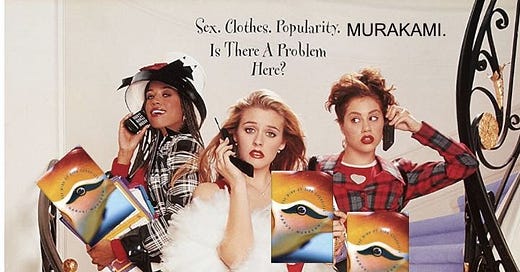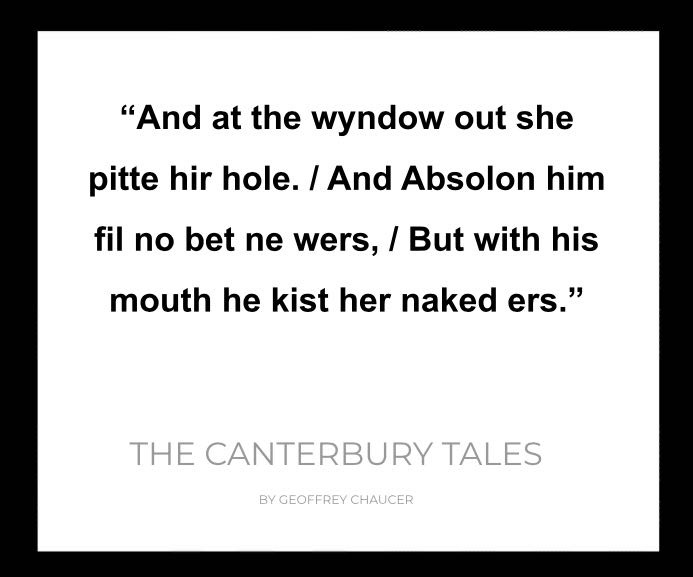Move over, Matt Krause.
The former Texas state representative made national headlines in late 2021 when he demanded to know from schools in the state whether they had any books from a list of more than 800 titles that he said "might make students feel discomfort, guilt, anguish, or any other form of psychological distress because of their race or sex.” Though the list contained some books with sexual content, it also contained books like And Tango Makes Three and Isabel Wilkerson’s Caste.1
Now another far-right activist says she has bested Krause. Christin Bentley, the State Republican Executive Committeewoman for Senate District 1, says she has a list of over 1000 “filthy books” that she has found in Texas school libraries. Bentley has led the Republican Party’s “Stop Sexualizing Texas Kids” initiative, the cornerstone of which is the push to pass Rep. Jared Patterson’s HB900—a bill that could remove hundreds of books from Texas schools and which is titled, ironically, the READER Act (for ‘Removing Explicit and Adult Designated Educational Resources’).
And Bentley has been quietly effective. As part of her campaign, she has sent one “filthy” book to Texas lawmakers each workday since February 20th—or, to be more precise, she’s sent them out-of-context passages copied from Moms for Liberty’s book rating website, BookLooks.org, dressed up with graphics that emphasize shocking words or phrases.
It’s essentially a slow-motion version of what we’ve seen Moms for Liberty and other activist groups do in school districts across the country: 1) assemble a list, however haphazardly, of ‘suspect’ books; 2) dramatically read salacious passages from those books at school board meetings; and 3) hope to generate enough outrage to enact a policy change.2
And it seems to have worked. On the day HB900 was debated in the House Public Education Committee, Bentley sent members excerpts from The Perks of Being a Wallflower, which several members mentioned during the bill’s debate. HB900 sailed through both House and Senate committees with little resistance; the “filthy books” campaign seems to have helped cow the legislature’s moderates while radicalizing its reactionaries. Somehow, Bentley and her “filthy books” project helped the legislature convince itself that removing hundreds of books from school libraries is the state’s highest educational priority.
Though Bentley has not published her list, I don’t doubt that she has found more than 1000 books that contain content that, taken out of context, could shock unsuspecting readers.3 Anyone who paid attention in high school English knows that literature often has sex in it because, well, literature is about life. You can’t teach literature, or be a well-read person, without encountering occasional sex scenes—sometimes shocking ones. I don’t know if her list includes Richard Wright’s Native Son, for example, but it certainly could, given that in the first few pages of the novel the protagonist and a friend masturbate together in a movie theater. And I don’t know if it includes Ralph Ellison’s Invisible Man, widely considered one the most important American novels, but it could, given that the novel includes scenes of violent sex, sexual humiliation, and excruciating scenes of incest and rape. I don’t know if her list includes The Canterbury Tales, but, if you know The Miller’s Tale, you know.
But I have seen enough of the novels Bentley has sent lawmakers to know that her list is plagued by the same problems that you see in the lists making their way around every district—whether they consist of 35 books or 300.
For example: One of the list’s books is The Wind-Up Bird Chronicle by Haruki Murakami, which Bentley (cribbing from BookLooks) reduces to “explicit sexual activities; sexual nudity; alcohol use; self-harm; suicide; and extreme/excessive violence.”
The Wind-Up Bird Chronicle is a strange but masterful novel by one of the world’s best-regarded living writers. Murakami is a perennial candidate for the Nobel Prize, literature’s most prestigious award. Yes, the novel is sometimes shocking; but it’s also startlingly original and at turns beautiful and profound.
It’s also very, very long. I promise you that no high school student has ever turned to The Wind-Up Bird Chronicle for titillation. Banning it from schools would be like banning James Joyce’s Ulysses—sure, there’s sex stuff in there, but if a student gets through the whole book, instead of worrying that they’ve been corrupted you should congratulate them and offer them a college scholarship.
That’s the thing: Great works of literature always get caught up in these dragnet assaults on books, because these assaults don’t consider the particularities of individual books or the students who read them. Librarians and teachers do.4
In a previous post, I went through the novels and plays listed on the 2022 AP Literature exam and found that half of them would likely be banned from schools under the definitions of “sexually explicit” Patterson initially put forward in the bill.5 The fact that the bill’s biggest backer is calling The Wind-Up Bird Chronicle “filth” is another clear indicator that, if passed, HB900 will remove excellent works of literature from Texas schools. In doing so, the bill would hamper learning opportunities for Texas students. Anyone who cares about reading, or reading education, or readers, should be concerned.
See also Simone Carter’s “10 of the Most Absurd Titles on State Rep. Matt Krause's 'Banned Books' List” (Dallas Observer).
Notably absent from the process: asking educators why they’ve selected these books as educational resources; asking students what they gain from the books in question; and, of course, actually reading the books.
I asked Bentley on Twitter if she would send me her full list. She has not.
So do book review committees, which read texts as a whole and consider the communities of readers likely to encounter the books in question. But that’s part of the impetus for bills like HB900. Pro-censorship activists, including the bill’s author Jared Patterson, are furious that committees often return challenged books to the shelves.
One bit of good news regarding HB900 is that Democratic lawmakers in the House added language into the bill that (slightly) softens the language defining “sexually explicit,” allowing vendors to take into account the context of a work’s sexual material. But the bill still forbids libraries from possessing materials that fall under the vaguely defined categories of “pervasively vulgar” and “educationally unsuitable.” As we’ve seen in a recent case in Spring Branch ISD, school boards are defining “educationally unsuitable” any way they want—even for books that contain no sexual material at all.






She's obsessed with Sarah J. Maas and Chuck Palahniuk, the latter of which I highly doubt many high schoolers are even reading. I tried to read one she listed by CP and was bored after a couple of chapters. Not my jam. It's a little too late but we should have been writing in daily emails to reps countering her disingenuousness. I don't know how she and others in her cohort can look in the mirror after basically lying about the whole situation.
I would like to know what they want kids to read---Christian romance? A good Amish fiction? Hide the truth of the world from them?